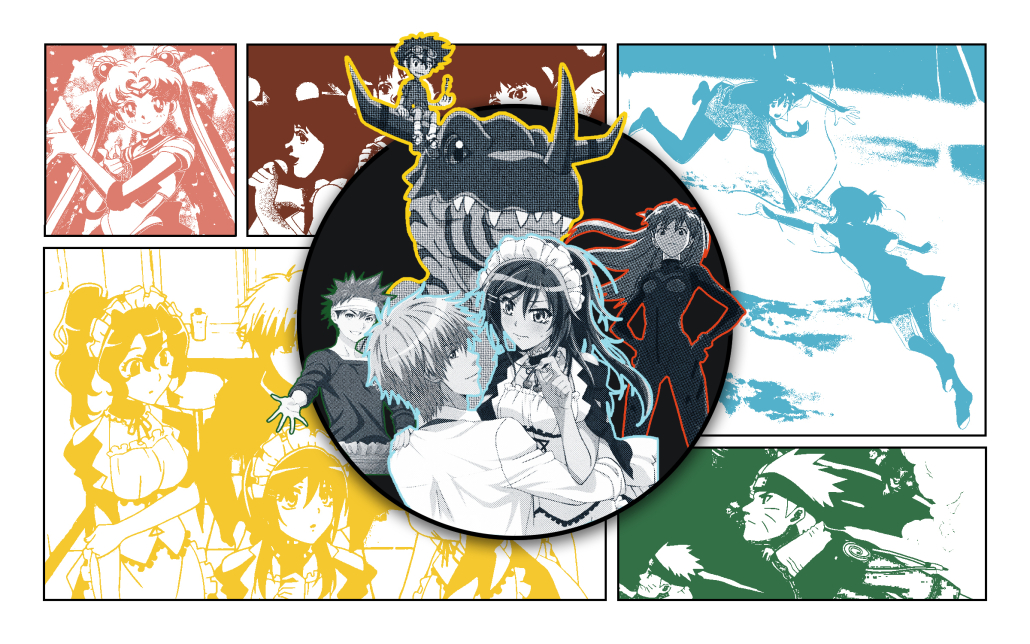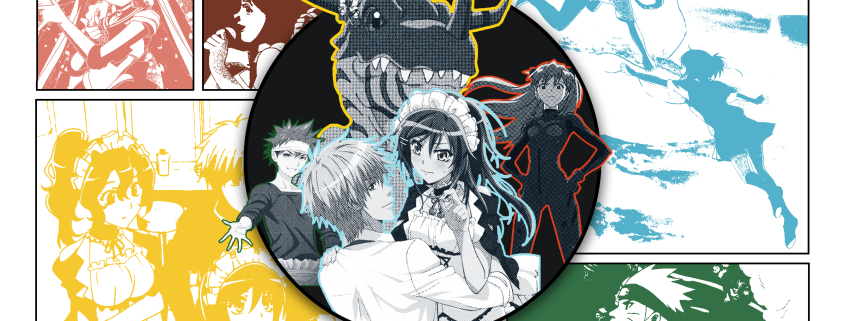Animated: Love Japanese anime, but don’t fetishize Asian people

Subjectively speaking, Japanese anime is great. I love Japanese anime. Since I was young, I loved going to the manga sections of the local library to read the latest editions of manga and watch their associated anime, like “Maid Sama!” I was absolutely fascinated by this visual way of storytelling, especially since there was also a cultural specificity around many of the characters and plots.
I appreciated seeing East Asian classrooms represented in anime, as it reminded me of my own educational exchange program experience in Taiwan. Whenever I saw these animated depictions of Japanese food, I felt like I was back in my predominantly Asian American community in the Bay Area, where Asian restaurants aren’t a rarity, but a prominent presence in my neighborhood. Seeing Japanese food reminded me of Taiwan as a whole, where the majority of my extended family lives.
Having been under Japanese colonization, Taiwan has been influenced fundamentally by this period of the island’s history. It was common for me on my summer trips to see a plethora of Japanese food with Taiwanese twists. My grandfather can speak some Japanese. Although I could talk about the complex legacies of colonization between Taiwan and Japan, the point of me bringing this up is that visiting Taiwan helped shape my relationship with anime, which has established itself as a dominant cultural force in Taiwan.
It was because of that global perspective that watching anime in the United States reminded me of being in Taiwan. Yet, even as my Asian American peers and I appreciated anime for its positive cultural connotations for identity, it was also difficult not to notice the way anime was appropriated.
People often conflated a love of anime with a desire to appropriate Japanese identity. Even though I loved anime, I don’t think there was ever a time when I would claim that I wasn’t Chinese or lie about my ethnicity. Nevertheless, it was common to be called the “weeaboo” label, albeit in a joking manner.
According to Dictionary.com, a “weeaboo” is defined as “a Western person who is obsessed with Japanese culture, often regarding it as superior to all other cultures.” However, Computer Hope takes a broader approach to the term’s definition, applying it to “fans of Japanese anime cartoons or manga comics.” This definition is implied to include all non-Japanese people who are invested in Japanese anime and manga.
With anime having immense cultural weight in the world — according to Solomon Pace-McCarrick at E-International Relations — anime has expanded awareness of Japan and Japanese culture. I don’t think that’s a bad thing, nor should anime lovers be immediately labeled in a derogatory manner.
In fact, if anime is a means of both artistic and cultural expression, then this form of entertainment is able to grow an understanding of Japanese culture. Having become increasingly multicultural, as noted by Pace-McCarrick, anime is also able to cultivate empathy through storytelling.
Despite this, a love of anime has, for lack of a better and less cringey descriptor, a dark side. Just look at Ella and Johnny on the reality TV dating show “90 Day Fiancé.” A YouTube video focuses on this exact relationship — created by “thots n prayers,” the compilation of moments from the show is titled “asian obsession on crackkk (90 day fiance: ella & johnny).”
This video, although edited for comedic effect, features multiple real moments of the series when Ella, a 29-year-old white woman, openly describes her love of all Asian things and Asian people stemming from her love of anime. Her proclaimed love of Asian people leads her to conflate Johnny, a Chinese man, with her specific love of Japanese culture, and begin a relationship with him.
Throughout the video, Ella seems grossly unaware that her appreciation for Japanese culture is instead an infatuation that has contributed to racial objectification. She calls Johnny her “Asian prince” and that her “obsession with Asian culture” is “much more than just cosplay” because she also loves Japanese anime. It’s almost laughable how earnest Ella is — and how ignorant.
It’s important to emphasize that the problem doesn’t lie with anime. It lies with those who consume it. As with all things, there’s a balance between loving something and fetishizing it. It’s possible to be a fan of Japanese anime without projecting it onto Asians. Still, it’s dangerous when some of the tropes present in anime, such as hypersexualization of girls, become a vehicle for stereotypes about Asian women as submissive and voiceless.
For me, it’s been a tool for understanding Taiwan’s political history and the impact of that history on my Asian American identity. For others, it’s become a means of fetishizing Asian culture and objectifying Asians. What that shows is that if anything, anime is just as complex as any other cultural medium in the world — and we need to appreciate it, not appropriate it.
Valerie Wu is a senior writing about animation and digital arts from a contemporary perspective.

